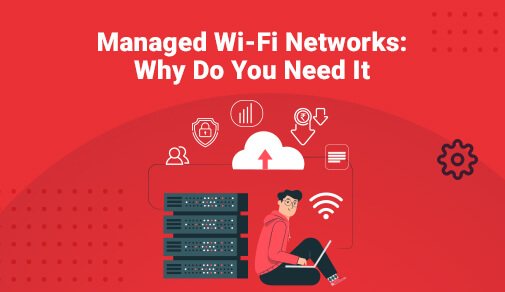Managed Wi-Fi Networks: Why Do You Need It
-
0
-
-
2 minutes

Know More
Connectivity is essential for running a competitive company, whether you have a small office or a large corporation with many locations. Employees can step away from their desks and be more versatile with their work environment thanks to a well-managed wireless ecosystem, which generates and fosters a more positive work culture.
4 Benefits of Managed Wi-Fi
Below are the major benefits on Managed Wi-Fi networks -
Cost Effective:
Controlled WiFi is provided by an Internet provider, allowing companies to save money by eliminating the need for an on-site IT department to monitor and troubleshoot a property's WiFi while also gaining access to cutting-edge wireless technology and cyber-security experts. Scalability:
Scalability is one of the most important advantages of regulated WiFi networks. Providers may use managed WiFi to simply add new access points or WiFi extenders to areas of a building where they find bad connectivity – before users even notice. Huge multi-unit apartment complexes, large national warehouse and chain-retail stores, hospitals, and enterprise offices will all benefit from this. Reliability:
Nothing ruins efficiency more than a bad WiFi link (or one that is spotty). For several companies, this will include making their IT department diagnose the problem or enlisting the help of a professional. Those that use a Managed WiFi network have access to 24/7 dedicated support, which diagnoses, troubleshoots, and fixes WiFi issues remotely – without the need to come on-site. Security:
In terms of protection, managed WiFi is a better choice than an internal IT department since it enables companies to outsource to qualified professionals. These security experts are well-versed in the best practises for configuring the most reliable networks and administrative controls. They will verify links and keep an eye on networks for possible threats and breaches.







